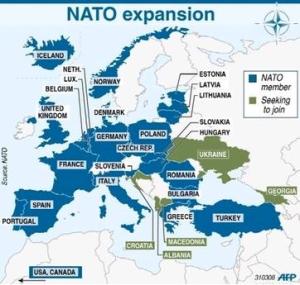21st Century Culture: Free Enterprise vs Government Control
May 28, 2010
Arthur C. Brooks
This is not the culture war of the 1990s. It is not a fight over guns, gays or abortion. Those old battles have been eclipsed by a new

Free Enterprise needs to exist for the gears to move.
struggle between two competing visions of the country’s future. In one, America will continue to be an exceptional nation organized around the principles of free enterprise — limited government, a reliance on entrepreneurship and rewards determined by market forces. In the other, America will move toward European-style statism grounded in expanding bureaucracies, a managed economy and large-scale income redistribution. These visions are not reconcilable. We must choose.
It is not at all clear which side will prevail. The forces of big government are entrenched and enjoy the full arsenal of the administration’s money and influence. Our leaders in Washington, aided by the unprecedented economic crisis of recent years and the panic it induced, have seized the moment to introduce breathtaking expansions of state power in huge swaths of the economy, from the health-care takeover to the financial regulatory bill that the Senate approved Thursday. If these forces continue to prevail, America will cease to be a free enterprise nation.
I call this a culture war because free enterprise has been integral to American culture from the beginning, and it still lies at the core of our history and character. “A wise and frugal government,” Thomas Jefferson declared in his first inaugural address in 1801, “which shall restrain men from injuring one another, shall leave them otherwise free to regulate their own pursuits of industry and improvement, and shall not take from the mouth of labor the bread it has earned. This is the sum of good government.” He later warned: “To take from one, because it is thought that his own industry and that of his fathers has acquired too much, in order to spare to others, who, or whose fathers, have not exercised equal industry and skill, is to violate arbitrarily the first principle of association, the guarantee to every one of a free exercise of his industry and the fruits acquired by it.” In other words, beware government’s economic control, and woe betide the redistributors.
Now, as then, entrepreneurship can flourish only in a culture where individuals are willing to innovate and exert leadership; where people enjoy the rewards and face the consequences of their decisions; and where we can gamble the security of the status quo for a chance of future success.
Yet, in his commencement address at Arizona State University on May 13, 2009, President Obama warned against precisely such impulses: “You’re taught to chase after all the usual brass rings; you try to be on this “who’s who” list or that Top 100 list; you chase after the big money and you figure out how big your corner office is; you worry about whether you have a fancy enough title or a fancy enough car. That’s the message that’s sent each and every day, or has been in our culture for far too long — that through material possessions, through a ruthless competition pursued only on your own behalf — that’s how you will measure success.” Such ambition, he cautioned, “may lead you to compromise your values and your principles.”
I appreciate the sentiment that money does not buy happiness. But for the president of the United States to actively warn young adults away from economic ambition is remarkable. And he makes clear that he seeks to change our culture.
The irony is that, by wide margins, Americans support free enterprise. A Gallup poll in January found that 86 percent of Americans have a positive image of “free enterprise,” with only 10 percent viewing it negatively. Similarly, in March 2009, the Pew Research Center asked individuals from a broad range of demographic groups: “Generally, do you think people are better off in a free-market economy, even though there may be severe ups and downs from time to time, or don’t you think so?” Almost 70 percent of respondents agreed that they are better off in a free-market economy, while only 20 percent disagreed.
In fact, no matter how the issue is posed, not more than 30 percent of Americans say they believe we would fare better without free markets at the core of our system. When it comes to support for free enterprise, we are essentially a 70-30 nation.
So here’s a puzzle: If we love free enterprise so much, why are the 30 percent who want to change that culture in charge?
It’s not simply because of the election of Obama. As much as Republicans may dislike hearing it, statism had effectively taken hold in Washington long before that.
The George W. Bush administration began the huge Wall Street and Detroit bailouts, and for years before the economic crisis, the GOP talked about free enterprise while simultaneously expanding the government with borrowed money and increasing the percentage of citizens with no income tax liability. The 30 percent coalition did not start governing this country with the advent of Obama, Nancy Pelosi and Harry Reid. It has been in charge for years.

